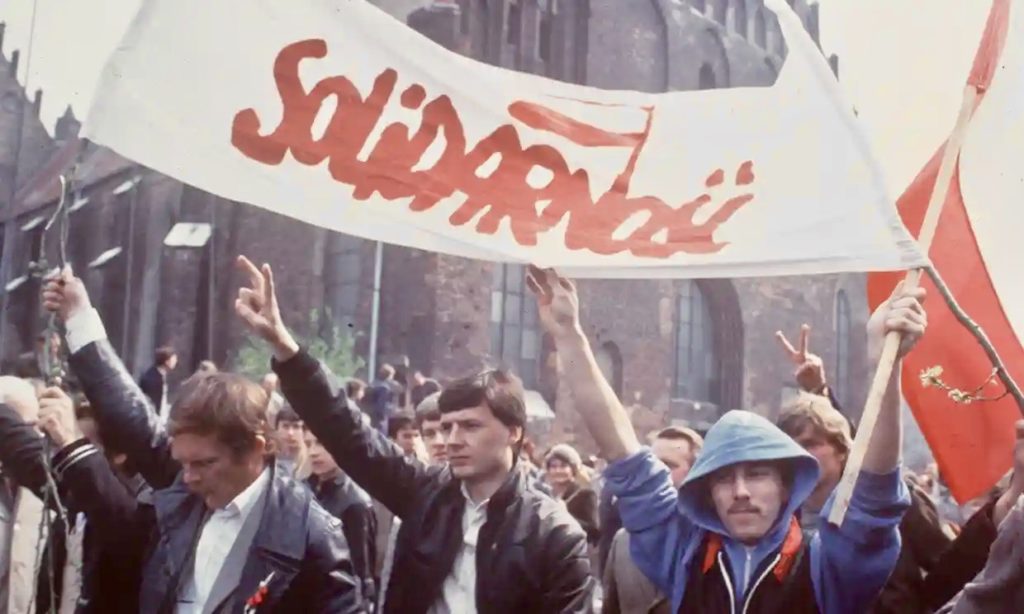Many great loves have bloomed at summer camp. The 1980s Polish work education camp in Tomasz Jedrowski’s novel Swimming in the Dark is much more toil than leisure, but the eager love still flourishes. The narrator is Ludwik, writing a few years later to Janusz, the man he met there and still passionately loves.
Central to Janusz and Ludwik’s story is James Baldwin’s Giovanni’s Room, which serves as a primary instrument to drive the novel’s story and as a significant and personal tribute from Jedrowski. It makes me think of history making, norm shattering public figures giving public addresses and paying homage to the people from their communities who paved the way before them. They’re signaling an understanding of the immense history that allowed them to be there, and the importance of history is certainly not lost on Jedrowski. He might not be overt in showing the reader the oppressive setting his characters are navigating – the everyday bureaucracy is more present than a sense of dire danger. Yet, the frequent references and allusions to consequential historic events serve to remind the reader that this story’s context is lost without history. For example:
“We vibrated with the rhythm of the clattering engine. Sun streamed onto my face, and outside, the spire of the city’s symbol – Stalin’s Palace of Culture – reached so high into the soft blue sky it made your neck hurt to look at it. I was strangely elated.”
“He lived on his own, he said, in a single room in one of those large bourgeois apartments the Germans had built when the city was still called Breslau…”
“The first cerkwie came into sight, the first Orthodox churches, black and small and bulbous domes. They signaled a different land, the beginning of the wild and unaccountable east, where kings used to hunt for bison and where the plains are infinite.”
While it may be fiction, suspended in a timeline that never really happened, the characters exist, Jedrowki’s writing itself exists, because of the remarkable people who came before. I’m reminded that we don’t all feel the weight of history equally; the people breaking barriers feel its pressure far more as they shoulder the responsibility of representing their marginalized communities.
Jedrowski presents the uneasy conflict between a politics of bold radicalism and self-preserving conformity. He is careful not to paint Janusz with broad criticism; many of us can certainly empathize with his careful instincts and savvy political mind, keen not to risk modest joys in the dangerous pursuit of larger ones. However, it’s also clear that the history Jedrowski weaves throughout the story, frequent reminders of the past’s progress in the face of hardship, would not have been possible without the unrelenting mindset of people like Ludwik. The bold pursuit of more, and an inability to settle for less, is ultimately what drives us forward.
This book doesn’t need to be timely to be brilliant. It is stunning literature regardless of the circumstances. But I’d be remiss not to mention the current events surrounding its publication last year. After all, historical novels help us understand history, and history helps us understand the present. Poland is becoming an increasingly hostile place for LGBT+ people as its government has made opposition to gay rights central to its platform. The United Kingdom has seen the anti-trans movement flourish and has recently made it much harder for young people to affirm or adapt their identities — and we’re all fools if we fail to see how a renewed focus on gender conformity to exclude trans people can hurt everyone else too.
The decade of the 2020s has barely begun, so there’s still plenty of chances to consider our politics and where best to put our energy. I’ll be opening up Giovanni’s Room again next, because it’s always the right time to reread James Baldwin.

